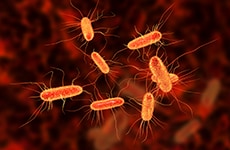New Jersey

- State Population: 9,261,699
- Local Health Departments: 94
- Frequent Public Health Emergencies: Severe Winter Storms/Tropical Cyclones, Environmental Contamination, Infectious Disease Outbreaks
- Key Emergency Operations Center Activations:
2020 – COVID-19 Pandemic - CDC PHEP Funding:
FY 2022: $16,344,236
FY 2021: $15,725,569
FY 2020: $15,144,167 - Public Health Crisis Response Funding:
Mpox 2023 funding: $913,753
COVID-19 2021 funding: $52,948,504
COVID-19 2020 funding: $21,224,891
- Epidemiologists: 12
- Laboratorians: 10
- Nurses: 1
- Planners: 11
- Other: 10*
*Includes IT specialists, administrative staff, statisticians, and other positions
1 Preparedness Field Assignee
- Public Health Surveillance and Epidemiological Investigation
- Information Sharing
- Community Preparedness
- Public Health Laboratory Testing
- Volunteer Management

In New Jersey, PHEP supports regional epidemiologists who have trained 280 local health department staff in outbreak investigation so that they can rapidly identify and respond if an outbreak occurs. In March 2018, a local health department member who had received training in how to interview patients of gastrointestinal illness from the regional epidemiologist linked a group of E. coli cases to a specific chain restaurant. Thanks to this epidemiological expertise, New Jersey was one of the first states to identify this trend and share the findings with CDC, leading to a multistate investigation linking E. coli to romaine lettuce and a swift response to control the outbreak.

When Pope Francis made his first trip to the U.S. in September 2015, about 112,000 people traveled through the state of New Jersey for his visit to Philadelphia. This event was designated a National Security Special Event, meaning that it was a potential target for terrorism or other criminal activity.